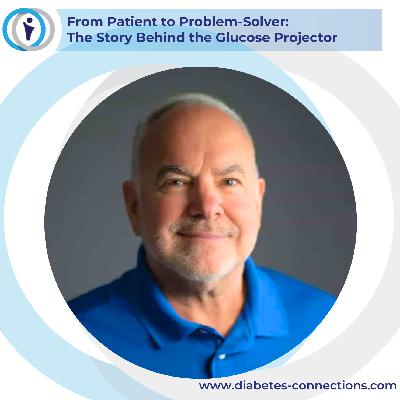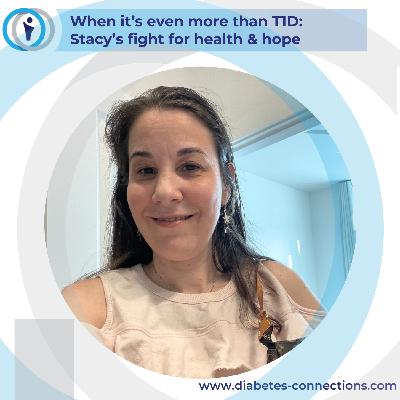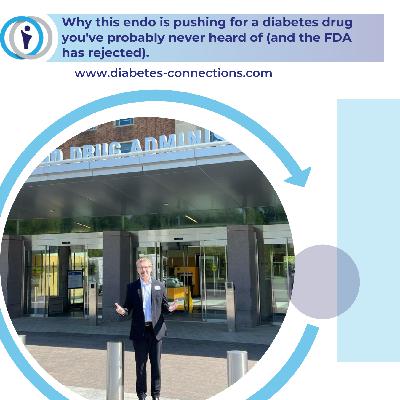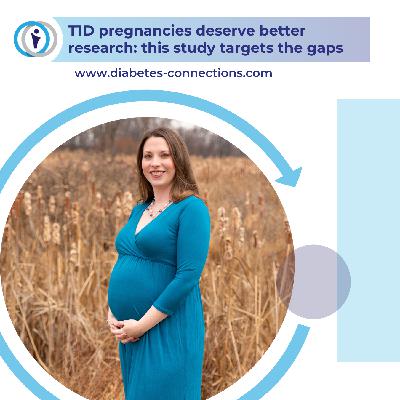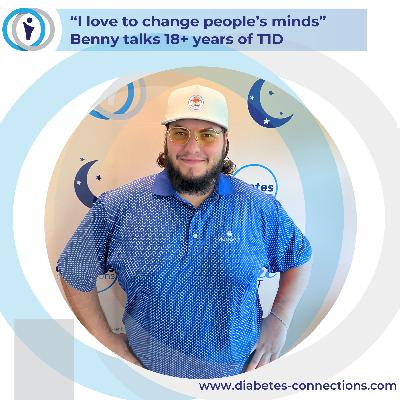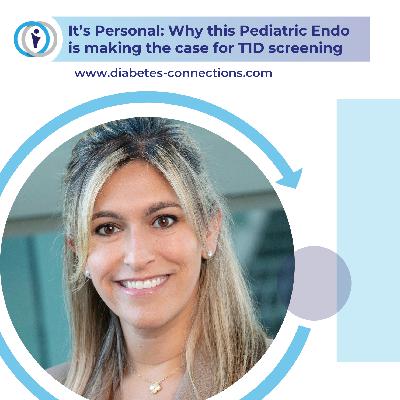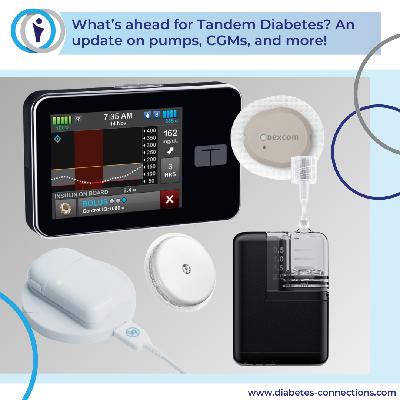In the News.. CRISPR transplant for type 1, T1D risk if dad has type 2, Metformin and the brain, oral GLP-1, and more!
Description
It's In the News.. a look at the top headlines and stories in the diabetes community. This week's top stories: CRISPR modified cell transplant for type 1, risk of T1D if parent has a different type of diabetes, Metformin and the brain, oral GLP-1, and more!
Find out more about Moms' Night Out
Please visit our Sponsors & Partners - they help make the show possible!
Learn more about Gvoke Glucagon Gvoke HypoPen® (glucagon injection): Glucagon Injection For Very Low Blood Sugar (gvokeglucagon.com)
Check out VIVI Cap to protect your insulin from extreme temperatures
The best way to keep up with Stacey and the show is by signing up for our weekly newsletter:
Sign up for our newsletter here
Here's where to find us:
Learn more about everything at our home page www.diabetes-connections.com
Reach out with questions or comments: info@diabetes-connections.com
Episode transcription with links:
Hello and welcome to Diabetes Connections In the News! I’m Stacey Simms and every other Friday I bring you a short episode with the top diabetes stories and headlines happening now.
XX
A 42-year-old man who has lived most of his life with type 1 diabetes has become the first human to receive a transplant of genetically modified insulin-producing cells. This marks the first pancreatic cell transplant in a human to sidestep the need for immunosuppressant drugs.
“This is the most exciting moment of my scientific career,” says cell biologist Per-Ola Carlsson of Uppsala University in Sweden, who helped develop the procedure. The new treatment, he says, “opens the future possibility of treating not only diabetes but other autoimmune diseases.”
This procedure uses the gene editing technique, CRISPR, to discourage the auto immune attack on the donor cells.
Before the transplant, the participant had no measurable naturally produced insulin and was receiving daily doses of the hormone. But within four to 12 weeks following the transplant, his levels rose slightly on their own after meals—showing that the new beta cells were releasing some insulin in response to glucose.
even though the new study is promising, it involved just one participant and is therefore preliminary. And longer-term monitoring is needed to confirm the therapy’s safety before it can be offered to more people. She also notes that the injected cells produced only 7 percent of the insulin needed for a person to be fully independent of additional medication. The researchers supplied the recipient with insulin doses to maintain healthy blood sugar levels.
While Herold thinks it’s still too early to consider this approach for a cure, “these options are now here to change the disease in ways that have never been possible before,” he says. “There’s tremendous hope.”
https://www.scientificamerican.com/article/type-1-diabetes-patients-insulin-production-restored-with-new-cell/
XX
This one is interesting… a recent study shows that children of mothers with gestational diabetes or fathers with type 2 diabetes have higher chances of developing type 1 diabetes than kids whose parents do not have any type of diabetes.
Specifically, the study found that children whose mothers had gestational diabetes during pregnancy were 94% more likely to develop type 1 diabetes compared to children of mothers without diabetes. Similarly, having a father with type 2 diabetes was linked to a 77% higher risk. The study also suggests a possible link between maternal type 2 diabetes and type 1 diabetes in children, although more data are needed to confirm whether the risk is real.
"What is interesting is that type 1 diabetes is a disease of lack of the hormone insulin while gestational diabetes and type 2 diabetes stem mostly from the body's resistance to the hormone. What may be happening is that genes, environments and behaviors that create insulin resistance may also, in some cases, trigger the immune reactions that lead to type 1 diabetes," adds Dr. Dasgupta.
A 2019 meta-analysis by researchers at Soochow University in China found that gestational diabetes was linked to a 66% higher risk of type 1 diabetes in children. This new study, which includes more than twice as many studies, offers a robust synthesis of current evidence and shows the risk is even greater than previously estimated. It is also the first meta-analysis to examine the link between paternal type 2 diabetes and type 1 diabetes in offspring.
"Several mechanisms may be at play. Families often share lifestyle and eating habits, which can raise the likelihood that children will be affected. But beyond that, high blood sugar levels may also cause biological changes in parents that could increase their children's risk of developing type 1 diabetes," explains Laura Rendon, co-first author of the study, who completed an MSc in experimental medicine at The Institute and, as someone living with type 1 diabetes herself, finds deep personal meaning in conducting this research.
For instance, the authors suggest that high blood sugar during pregnancy may stress the fetus's insulin-producing beta cells, reducing their number at birth or making them more vulnerable to damage later in life. It may also trigger epigenetic changes—modifications to proteins and molecules attached to DNA—that increase the risk. Likewise, high blood sugar in fathers with type 2 diabetes may cause epigenetic changes in their sperm, potentially influencing their child's risk of developing type 1 diabetes.
https://medicalxpress.com/news/2025-08-diabetes-children-linked-parents.html
XX
Can a CGM help you lose weight? The company Signos is banking on it – the just got FDA approval for their system, which uses the over the counter Dexcom Stelo.
The claim here is that the system will help track how food choices, activity, stress and sleep can all affect metabolism. Signos also works in partnership with the digital nutrition counseling startup Nourish. It currently offers a quarterly subscription plan, including six CGM sensors, for $139 per month. And they tell you don’t take any medical actions based on the app’s output without consulting a physician.
https://www.fiercebiotech.com/medtech/fda-clears-signos-over-counter-cgm-powered-weight-loss-app
XX
Good news for T1D1, a free mobile app that helps people calculate insulin doses, track daily data, and share insights with healthcare providers. After being pulled off the market with similar apps a few years ago, it’s now back a



